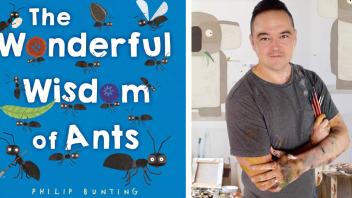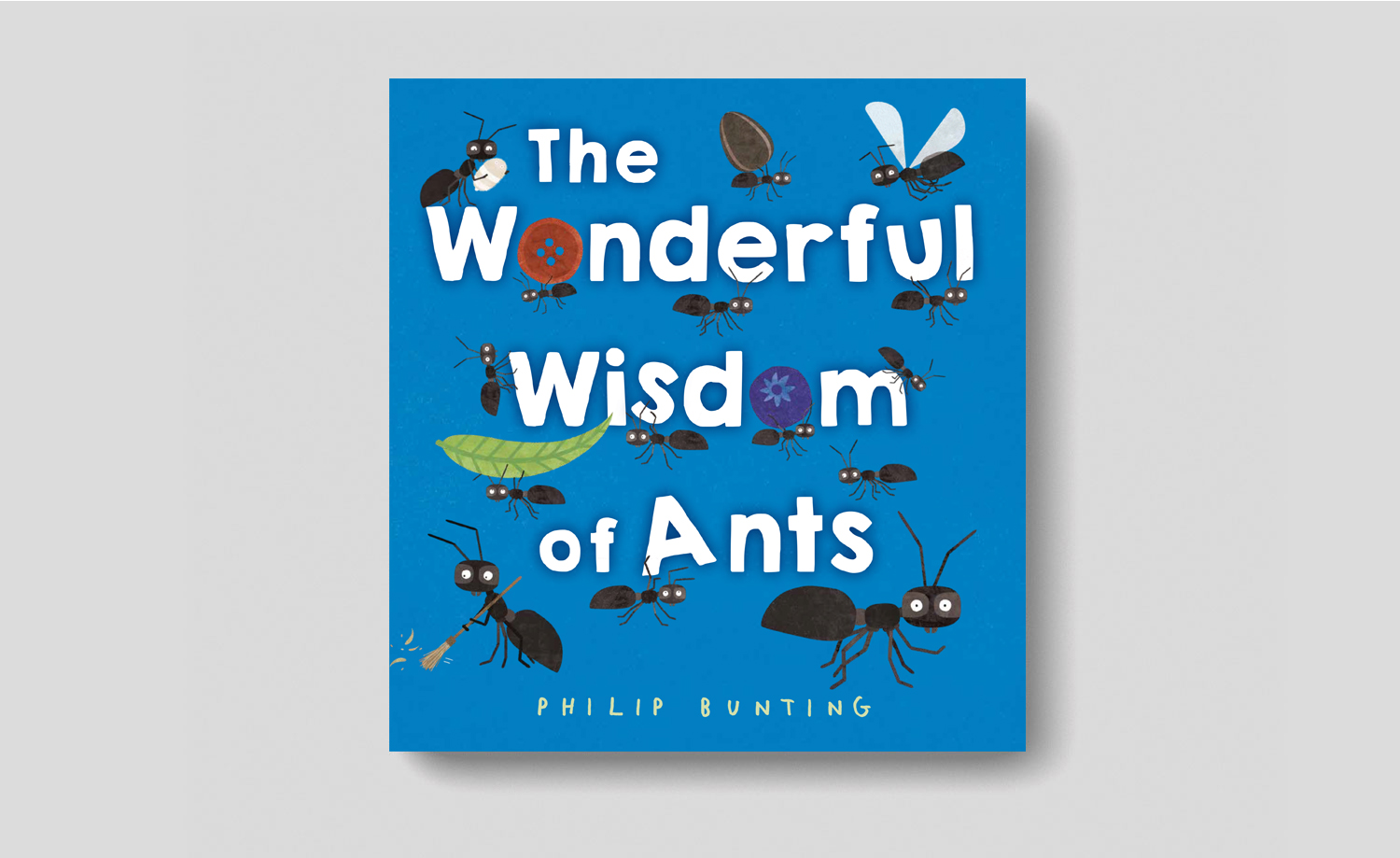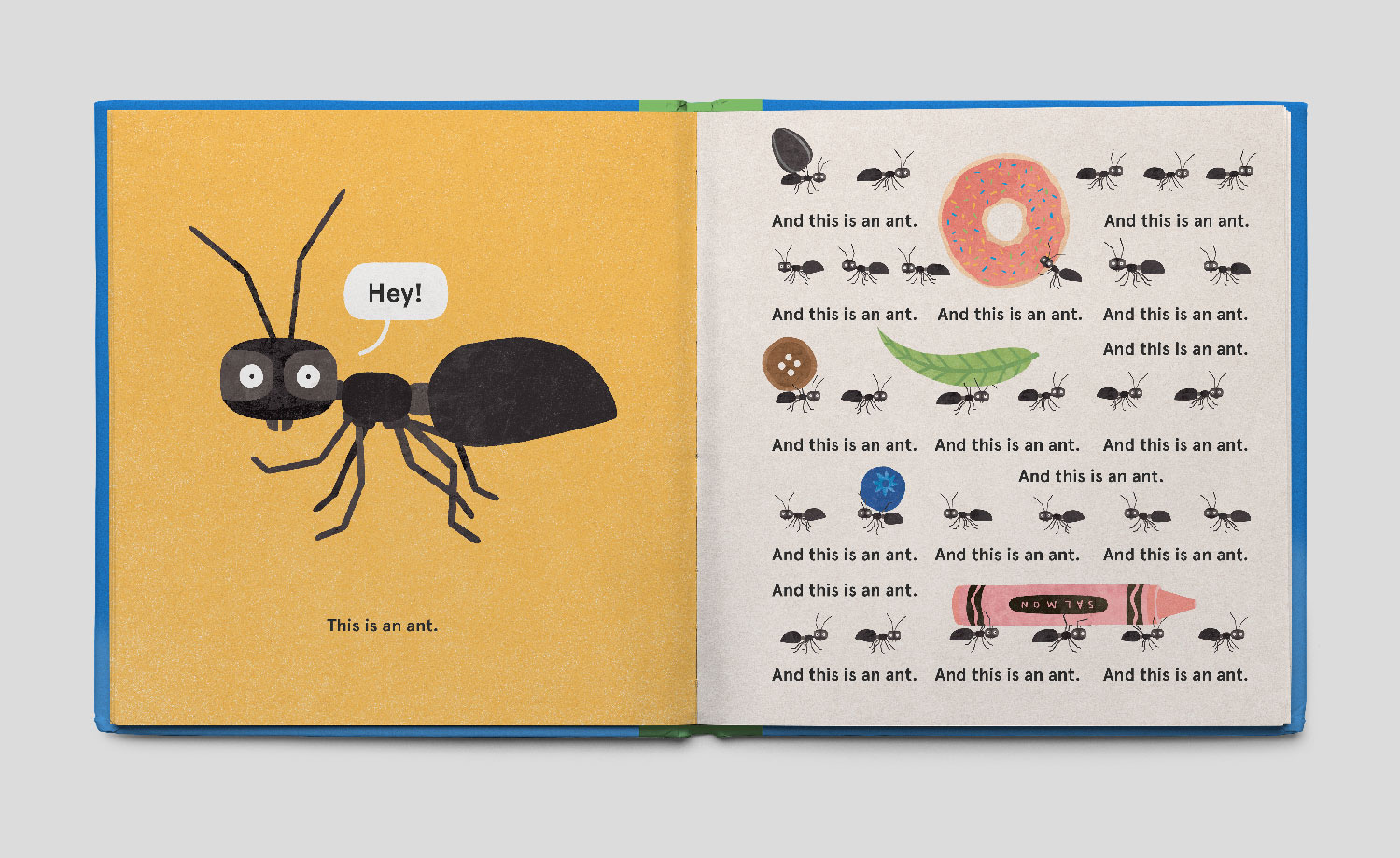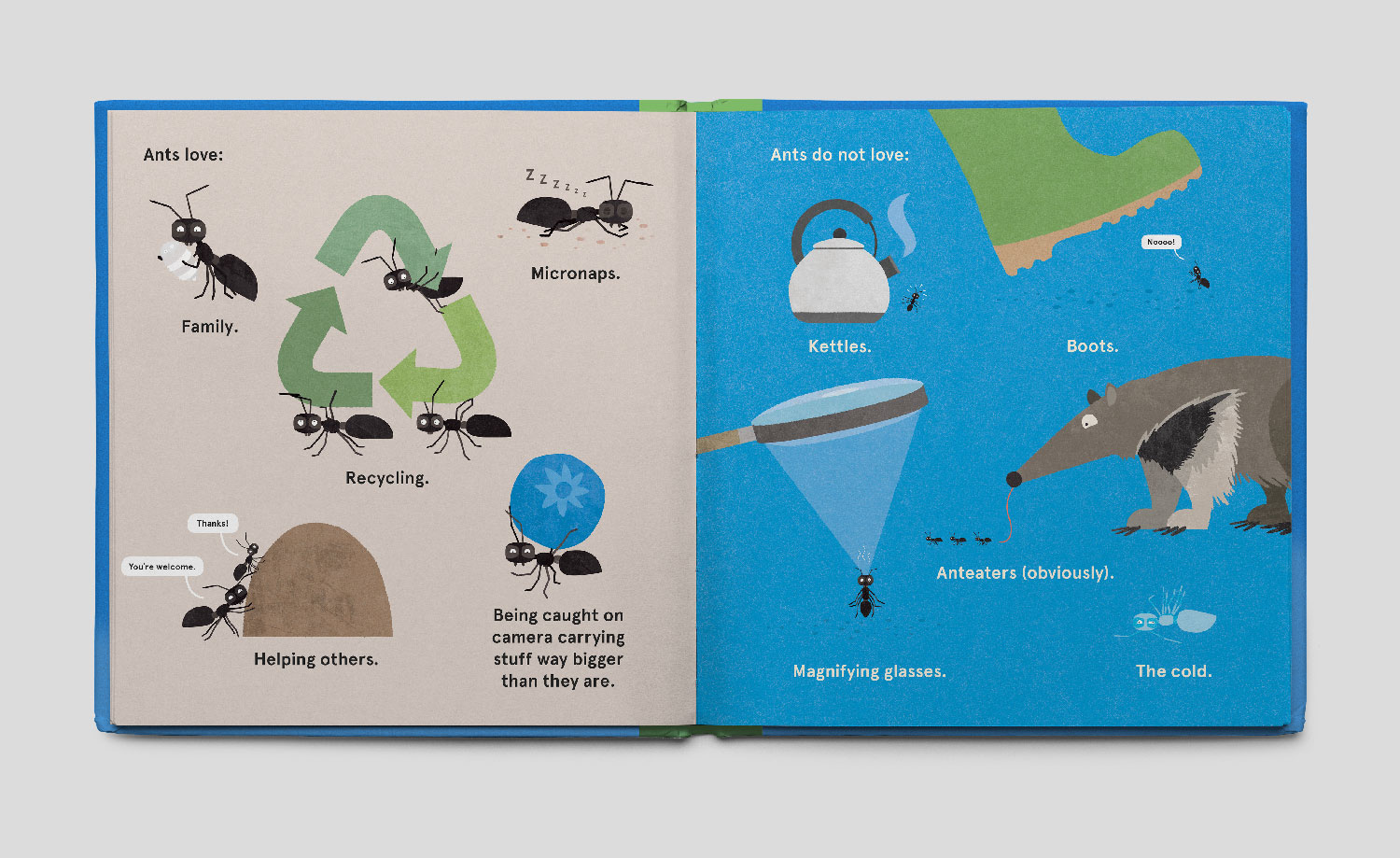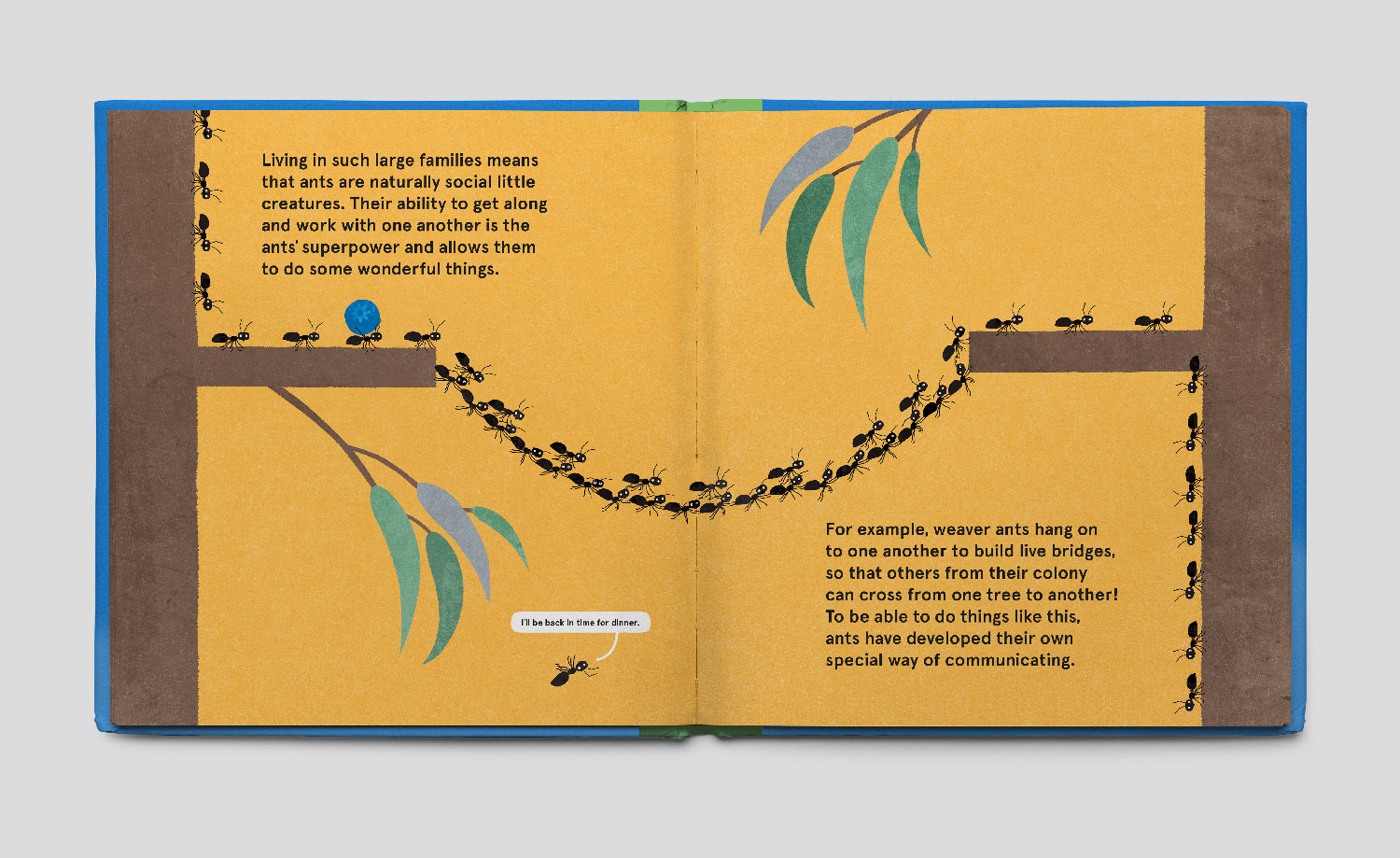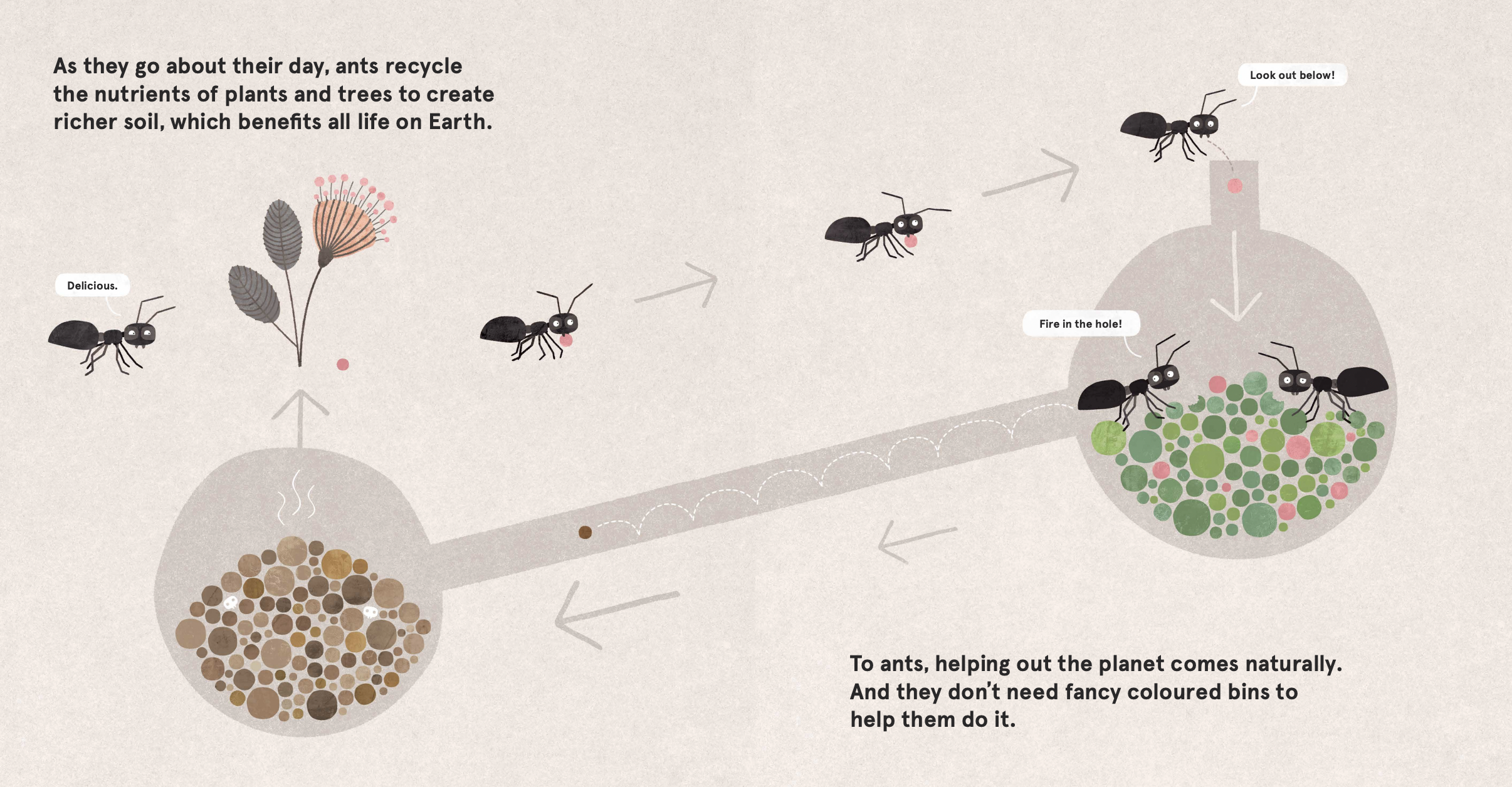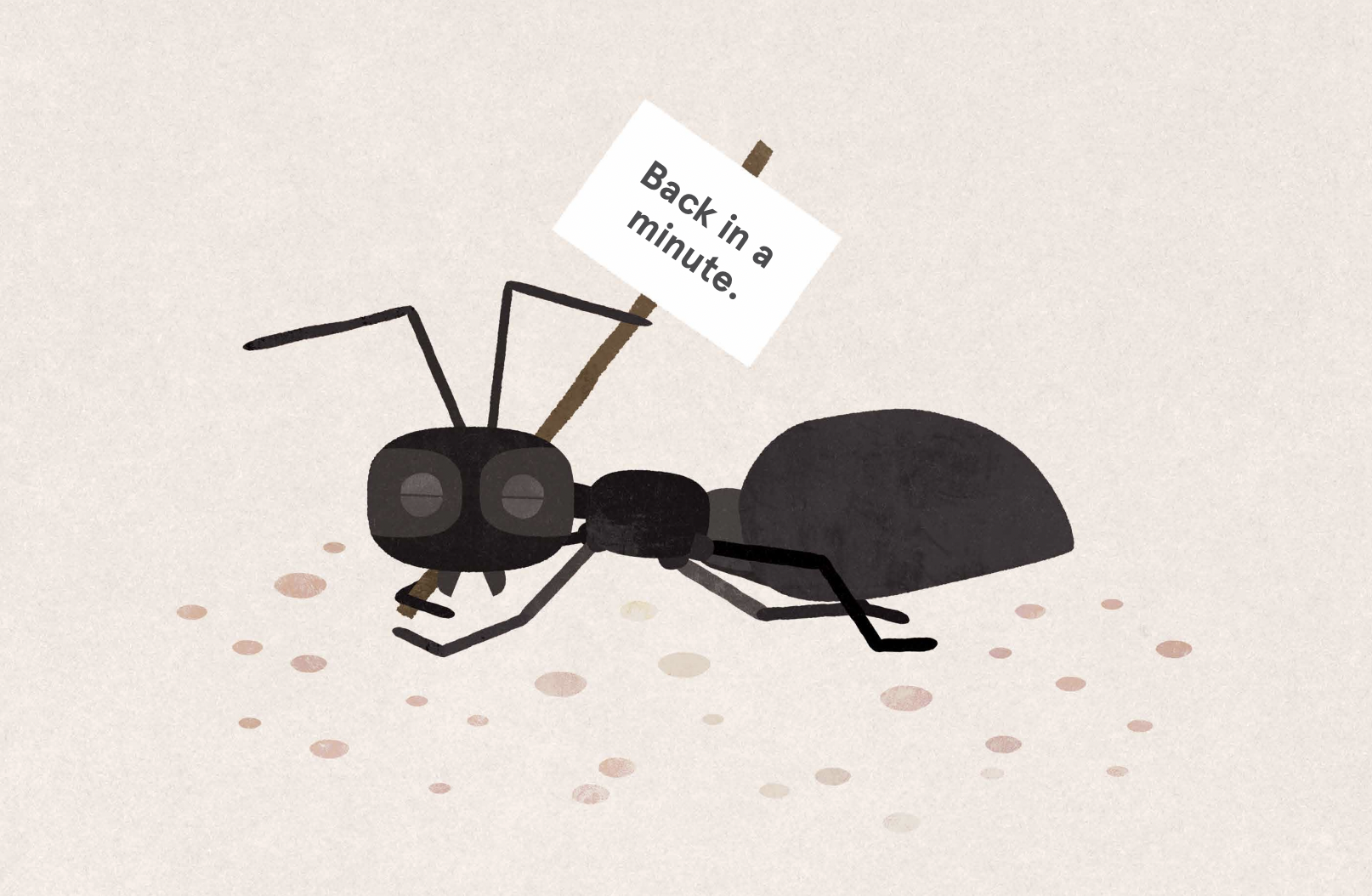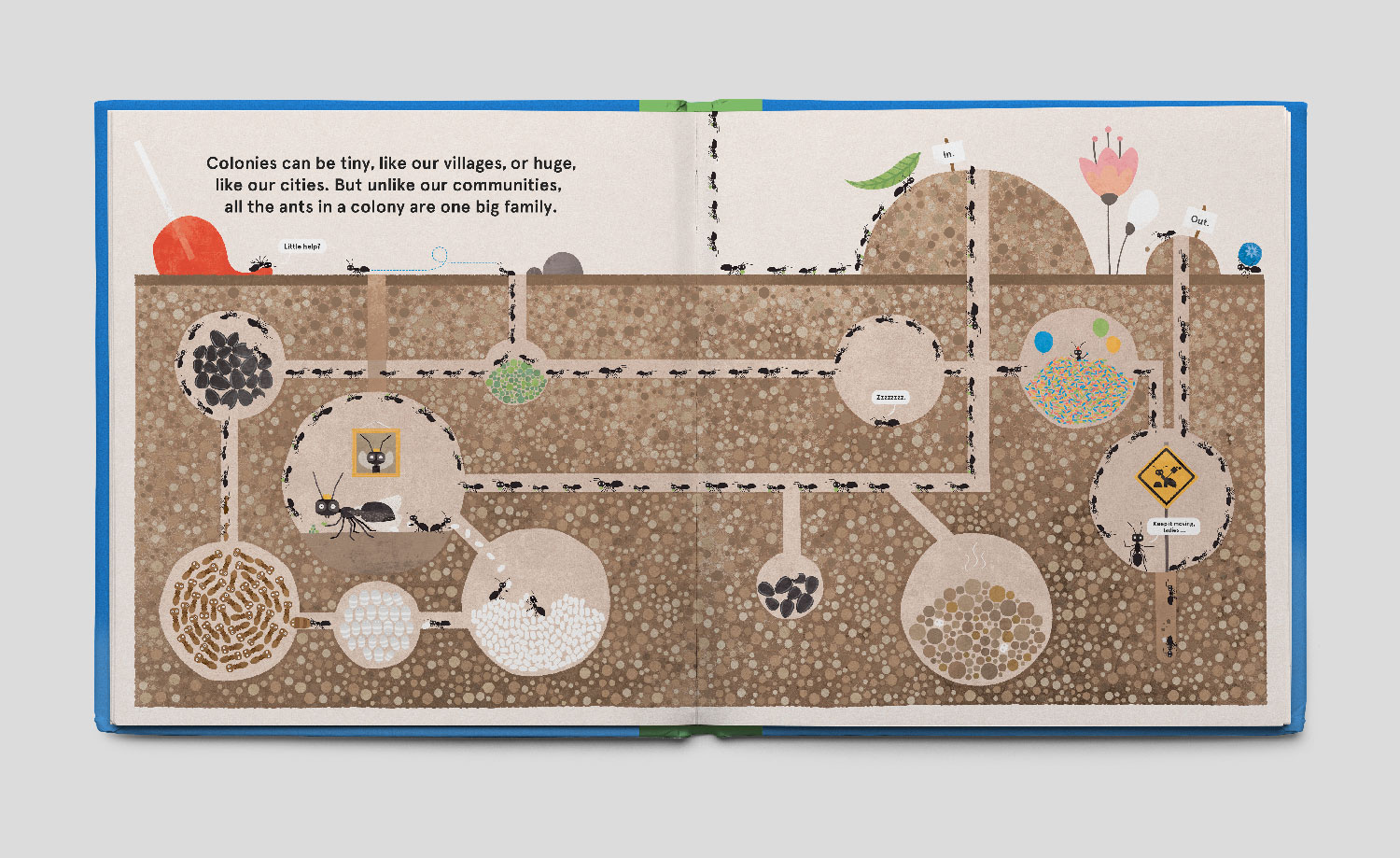As spring to turns to summer, I start to look for ants who want to make their way into my house. They are either sick of heavy spring rains or sudden days in the upper 80s have become too much for them and they try to head inside. Usually, the kitchen is the target, but this year the laundry room held appeal.
These house ants seemed particularly interested in the electrical outlet for the washer and dryer, moving very neatly along the basement wall straight to it and then back again. While we know that ants are an important part of our garden ecosystem, we didn’t really want a colony to start up where we wash and fold our clothes!
Before we destroyed their pheromone trails and put out deterrents, we had a good time watching these super social creatures and trying to figure out what it was they were conveying to each other. Of great help on that front — and massively entertaining — was Philip Bunting’s The Wonderful Wisdom of Ants (opens in a new window). Philip is an author and illustrator, whose picture books deliberately encourage the reader to playfully poke around at the edges of their understanding. His books have been published in over 35 countries around the world, in almost as many languages. The Wonderful Wisdom of Ants is now published in the U.S. by Penguin Random House (opens in a new window).
We are so delighted to have Philip here to share the wisdom he’s gained from these amazing insects.
On the Wonderful Wisdom of Ants by Philip Bunting
Hello, my name’s Philip. I write and illustrate picture books from my home here on the Sunshine Coast, which is about halfway up (or down) the East side of Australia. It looks something like this:
(Photo: Wikimedia Commons, Tim Bateup)
The Sunshine Coast is a pretty wild place to live.
We have extinct volcanoes scattered all around the place (see above), trees that grow pinecones the size of watermelons (Araucaria bidwillii), egg-laying mammals running through the bush (Tachyglossus aculeatus), the middle of summer is in January … and July is always the coldest month.
Despite this wild and wonderful environment — which is filled with even more wild and wonderful flora and fauna — I chose to make a book about … erm … ants.
I’m no myrmecologist. I’m not even a run-of-the-mill entomologist. Gasp. I’m just a keen dabbler who believes the answers to many of life’s questions can be found in your own backyard (once you’re ready to look). And under the rock in my backyard, there happened to be ants … so many ants.
The Wonderful Wisdom of Ants is a nonfiction picture book, created to help children (and former children) think twice about the six-legged scuttlers we know as ants. And by extension, question our assumptions about some of the stuff we take for granted.
Sure, we all know that some species of ant can carry things way bigger than they are — whoop-de-doo. We’ve all seen ants get a bit excited about somebody’s lemonade at a barbecue. And we’ve all probably — accidentally — squished one or two in our time. But what on Earth can we ever learn from these simple insects?
Here are five things we hairy humans can learn from the humble ant. In no particular order:
1. Two [thousand] heads are better than one!
Ant colonies can be tiny, like our villages, or huge, like our cities. Living in such large groups means that ants are naturally social little creatures. Their ability to get along and work with one another is the ants’ superpower and allows them to do some wonderful things (like build living ant bridges for their mates to cross!).
2. Reuse or recycle everything. Waste nothing.
As they go about their day, ants recycle the nutrients of plants and trees to create richer soil, which benefits all life on Earth. To ants, helping out the planet comes naturally. And they don’t need fancy colored bins to help them do it.
3. Power-nap whenever possible.
The majority of ants — the workers — don’t get much chance to luxuriate in 8 hours of sleep each day (like we do). Instead, the workers take hundreds of minutes-long micro-naps throughout the day. Didn’t I say they were very wise?
4. Do your best for those around you.
Just as we live in groups (like families, schools or cities) ants exist as a part of their colony. They rely on other ants to gather food, build the nest and raise the next generation of baby ants. In turn, each little ant does their best for those around them, rather than for themselves.
5. Leave the Earth in better shape than it was when you got here.
Ants do this through virtue of being an ant. But we can take this ethos and apply it to every decision, in every moment, to help benefit the greater good. If we each endeavor to make the world just a little bit better — to do the right thing with every decision, in each moment — then we leave the world just a little richer than it was before.
If we’re willing to look, we can learn something from just about anything in the world around us.
What lessons can you learn from the wild world around you? Take a peek under a rock, or up into a tree in your local park or on the way to school …
- What does the beautifully ephemeral mayfly have to teach you?
- What life lessons can you take from a humble spider, building her web?
- Or even from an earthworm, doing its thing?
There is wild and wonderful wisdom all around us. The answers to some of life’s biggest questions can be found in the smallest places — you just have to be ready to look.
Resources


